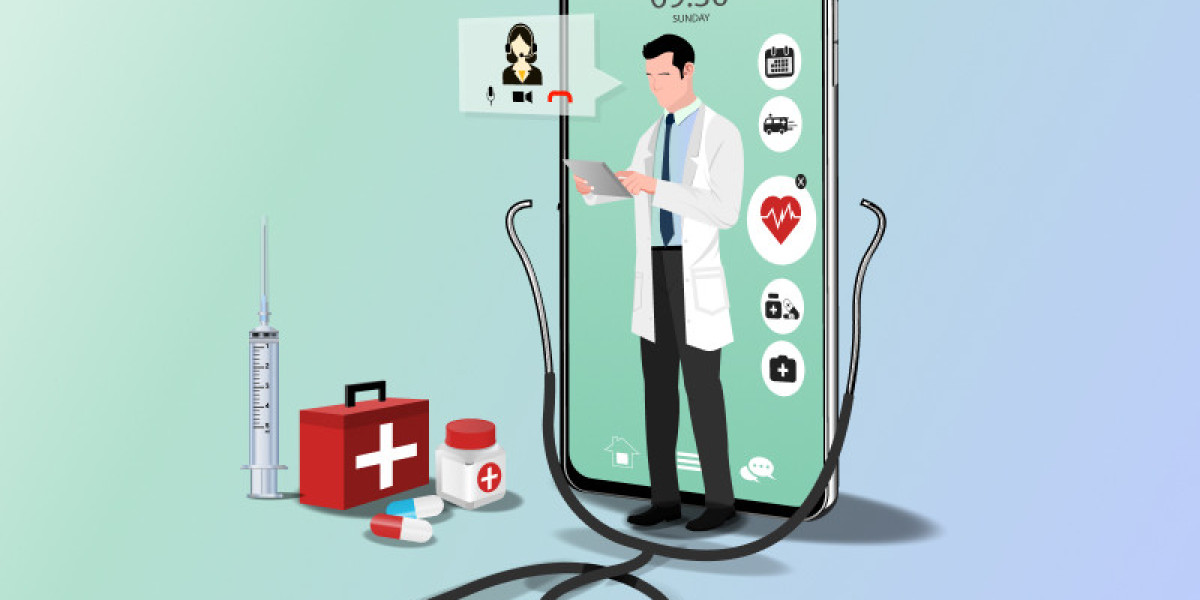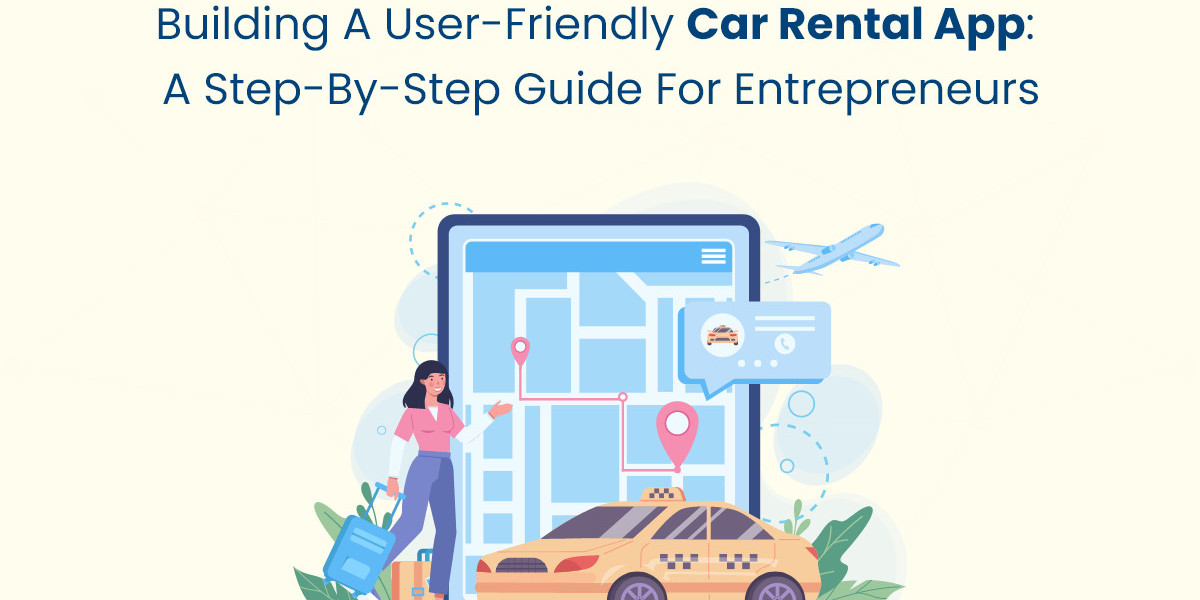In this article, we'll explore how healthcare app development services fuel innovation and create transformative solutions for the healthcare industry.
The Importance of Innovation in Healthcare
Healthcare innovation is vital to address the challenges of accessibility, affordability, and efficiency. With the rise of chronic diseases, an aging population, and a need for more personalized care, healthcare organizations are turning to digital solutions to enhance service delivery.
Mobile apps have emerged as one of the most effective digital tools for healthcare innovation. These apps improve patient engagement, provide real-time data monitoring, support telemedicine, and facilitate seamless communication between healthcare professionals and patients. Healthcare app development services are at the forefront of creating these solutions, enabling organizations to develop custom apps tailored to their specific needs.
Conceptualizing Healthcare Apps: The First Step to Innovation
The journey from concept to launch begins with identifying a problem that healthcare apps can solve. Healthcare app development services help organizations define their app's purpose and target audience by conducting thorough research and stakeholder interviews. This initial phase ensures that the app addresses critical pain points within the healthcare system, such as improving patient outcomes, streamlining clinical workflows, or reducing operational costs.
Some key considerations during the conceptualization phase include:
- User-Centered Design: Understanding the needs of healthcare professionals, patients, and administrators ensures the app is user-friendly and meets practical demands.
- Data Security and Privacy: Protecting sensitive patient data is paramount, and development teams must prioritize compliance with regulations like HIPAA (Health Insurance Portability and Accountability Act).
- Interoperability: Healthcare apps need to integrate with existing systems, including Electronic Health Records (EHRs) and other healthcare software, to enable seamless data exchange.
- Scalability: The app should be flexible enough to accommodate future growth and additional features as healthcare organizations evolve.
How Healthcare App Development Services Drive Innovation
1. Bringing Advanced Technologies to the Forefront
Healthcare app development services utilize the latest technologies to create innovative, feature-rich applications. By leveraging Artificial Intelligence (AI), machine learning, and predictive analytics, these services develop apps that can analyze patient data, provide real-time diagnostics, and recommend personalized treatment plans.
For example, apps powered by AI can assist in diagnosing medical conditions by analyzing images, such as X-rays or MRIs, faster and more accurately than traditional methods. Machine learning algorithms can predict patient outcomes based on historical data, allowing healthcare providers to intervene early.
2. Telemedicine Solutions
The COVID-19 pandemic accelerated the adoption of telemedicine, transforming how healthcare services are delivered. Healthcare app development services played a crucial role in developing telemedicine platforms, which allow patients to consult with healthcare providers remotely. These apps enable video consultations, online prescription refills, and remote monitoring of chronic conditions, making healthcare more accessible.
In rural areas with limited access to healthcare facilities, telemedicine apps are particularly valuable. They empower patients to receive quality care without the need to travel long distances, reducing healthcare disparities.
3. Remote Patient Monitoring
Remote patient monitoring (RPM) is another innovative solution driven by healthcare app development services. RPM apps allow healthcare providers to track patient data such as heart rate, blood pressure, and glucose levels in real time. This continuous monitoring enables proactive care, as doctors can intervene if they detect any concerning trends in a patient’s health.
For patients with chronic conditions like diabetes or hypertension, RPM apps are life-changing. They provide a direct line of communication between patients and healthcare providers, enabling better management of health conditions and reducing hospital readmissions.
4. Enhancing Patient Engagement
Patient engagement is a critical aspect of improving healthcare outcomes. Healthcare app development services develop apps that encourage patients to take an active role in managing their health. Features like appointment scheduling, medication reminders, and health education resources help patients stay on top of their care plans.
Additionally, apps that offer gamification elements—such as rewarding patients for completing health-related tasks—further boost engagement. By making health management more interactive and rewarding, healthcare apps can increase patient adherence to treatment regimens and improve overall health outcomes.
5. Customizing Solutions for Healthcare Providers
Every healthcare organization has unique needs, and healthcare app development services specialize in creating custom solutions that address specific challenges. Whether it’s streamlining administrative processes, improving care coordination, or enhancing communication between departments, customized healthcare apps provide the flexibility that off-the-shelf solutions often lack.
Custom apps allow healthcare providers to automate routine tasks, such as billing, appointment scheduling, and patient intake, freeing up time for healthcare workers to focus on patient care. These apps can also integrate with existing hospital systems, creating a seamless flow of information across departments.
The Road to Launch: Ensuring Success
The final stage of the app development process is the launch, where healthcare app development services ensure the app is ready for deployment. This phase involves rigorous testing to identify and resolve any bugs or glitches, as well as ensuring that the app complies with industry standards and regulations.
Some critical steps before launch include:
- User Testing: Involving healthcare professionals and patients in the testing process ensures the app functions as intended and meets the needs of end users.
- Compliance Verification: Healthcare apps must comply with HIPAA and other relevant regulations to protect patient privacy and ensure data security.
- Continuous Support: Post-launch support is crucial for addressing any issues that may arise and updating the app to include new features or improvements.
Post-Launch: Driving Ongoing Innovation
Healthcare app development services don’t stop at launch. To stay competitive, healthcare organizations must continually innovate and improve their apps. App updates can introduce new features, improve user experience, and ensure compatibility with the latest technologies.
For example, as wearable devices become more prevalent, healthcare apps can integrate with these devices to collect additional health data and provide more comprehensive care. By partnering with healthcare app development services, organizations can remain at the forefront of healthcare innovation and continue to deliver high-quality care to their patients.
Conclusion
From concept to launch, healthcare app development services are pivotal in driving innovation in the healthcare industry. By leveraging advanced technologies, enabling telemedicine, facilitating remote patient monitoring, and enhancing patient engagement, these services create custom solutions that address the unique needs of healthcare providers and patients alike. As the healthcare industry continues to evolve, healthcare apps will remain essential in improving care delivery and ensuring better health outcomes for all.








